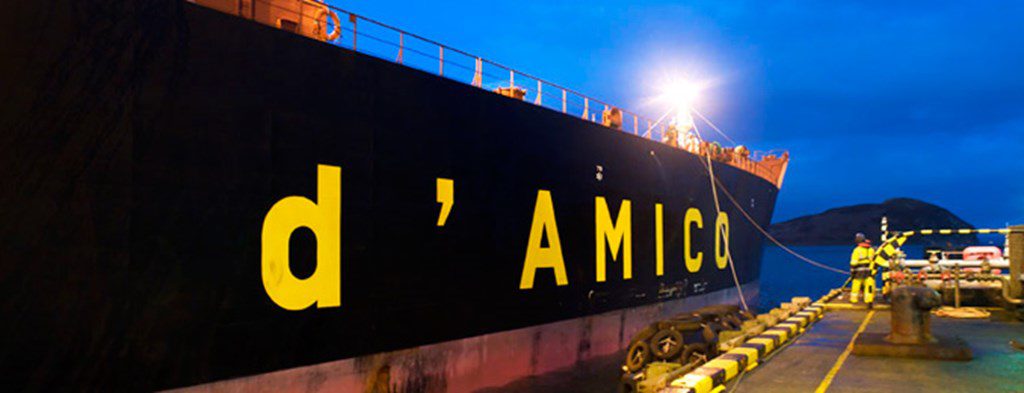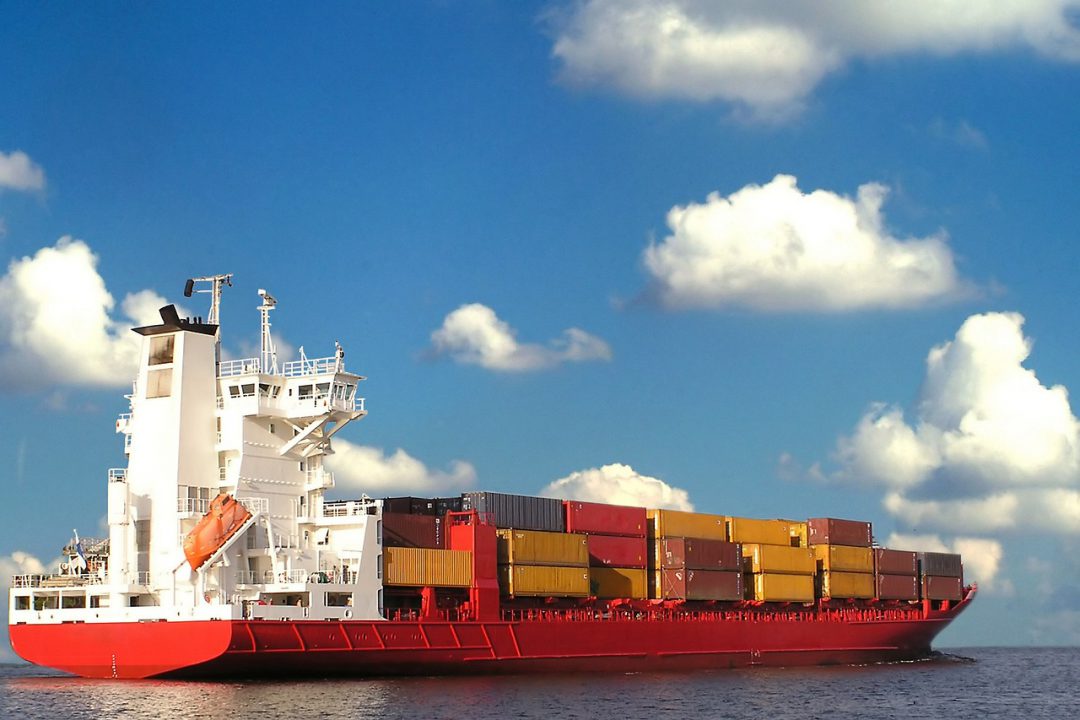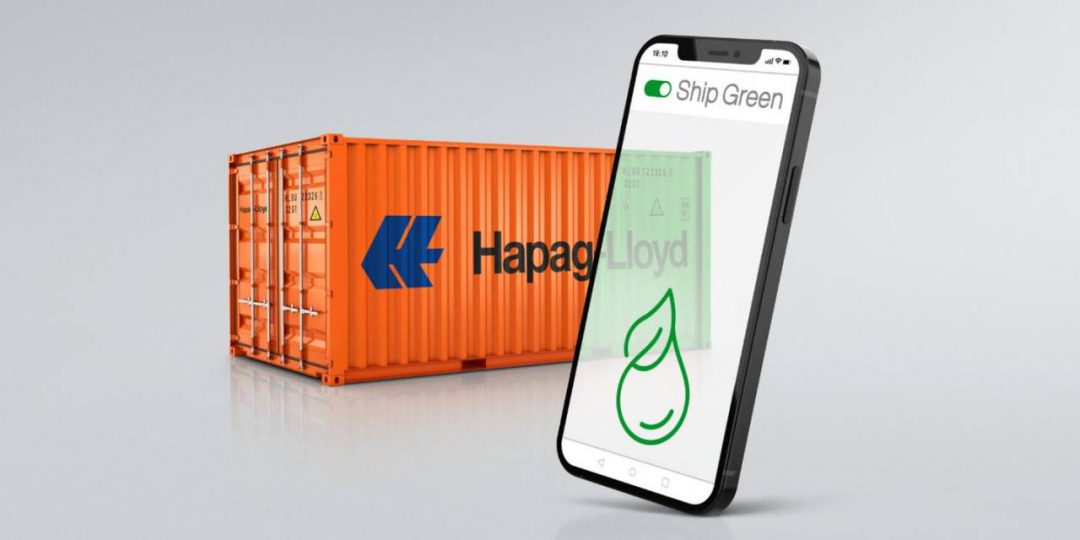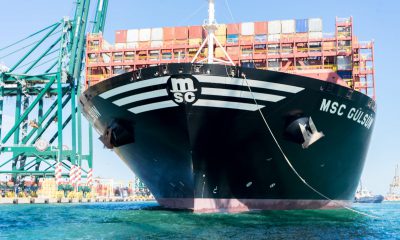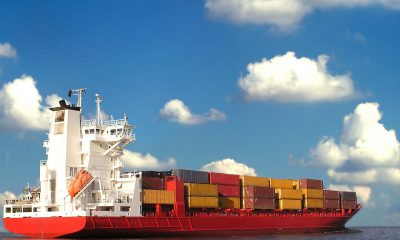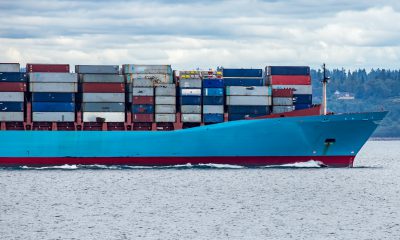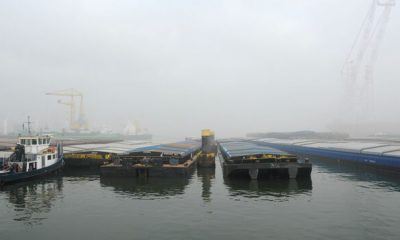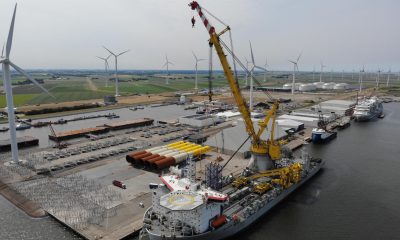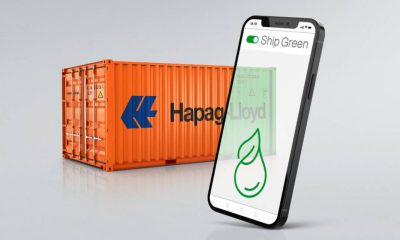The joint industry project launched in June 2021 to test biofuel blend derived from renewable feedstock to power a d’Amico Group LR1 product tanker, showed very positive findings in terms of the reduction of CO2 emissions, reduced carbon intensity, and stable NOx emissions. The results of the trials showed that the biofuel B30 blend is a viable solution to comply with EU Fuel regulations being introduced from January 2025 on the use of renewable and low-carbon fuels in maritime transport. The trials also showed that depending on the scale up of feedstock production worldwide, adding the biofuel blend as a “drop in” to traditional maritime fuels is a viable measure to reduce emissions.
Following these results and ahead of the new regulations, the d’Amico Group has certified through the Flag administration all its LR1 vessels to operate permanently with the B30 biofuel blend. The Group also intends to certify its entire fleet and to test biofuel B40 and B50 following the same methodology during 2022.
The trial followed the appropriate EU Fuel regulations/guidelines on calculating CO2 emissions using wellto-wake analysis. The results were:
• a 4.3% reduction of CO2 emissions per ton of fuel and a resulting CII of 3.99, with an improvement of 3.5% using very low sulphur fuel oils allowing an “A” vessel rating until 2026.
• confirmation from class and flag state that the biofuel blend B30 does not affect the Tier II certification of the engines for NOx compliance. Both main engines and diesel generators were tested for NOx compliance using the data measured allowed by the NOx technical code.
• an effective CO2 emissions reduction per ton of fuel by 25.3%, applying the Defra methodology. This methodology was used in anticipation of the approval of the WTW analysis framework by the International Maritime Organization and awaiting from the IMO clear indications on which methodology will be applied.
The trials were conducted on board the d’Amico Group LR1 product tanker vessel M/T Cielo di Rotterdam. The biofuel blend B30 was supplied by Trafigura maritime fuel supply and procurement joint venture TFG Marine in the Amsterdam-Rotterdam-Antwerp region.
This important project demonstrated how industry players are increasingly working collaboratively to reach joint decarbonization goals. The combined strategic vision and technical capabilities of charterers, original engine manufacturers, shipowners, fuel suppliers and regulatory bodies confirms how research studies can be shared to explore all options to decarbonize shipping.
Salvatore d’Amico, Fleet Director at d’Amico Group “Biofuel is one of the decarbonization strategies we are exploring in d’Amico for the existing tonnage. While we are closely monitoring the development of alternative fuels of the future, new technology for the propulsion and continue to invest in innovative digital solutions, we do believe that using the biofuel blend can speed up the decarbonization of the maritime
transportation with an immediate effect on the existing tonnage”.
Cesare D’Api, Deputy Technical Director at d’Amico Group “While there are currently a lot constraints about the green fuel of the future in terms of availability and scale up, the main two regulatory body EU and IMO has not yet lined up the strategy to account for GHG emissions and few technologies to burn the green fuel of the future are still under development, we have the possibility to give an immediate and practical contribution to the reduction of CO2 footprint using the so called “drop in” solutions. The biofuel blends in this respect have the potentiality to comply with forthcoming EU FUEL regulation and to bridge the gap to 2050 as a “Hybrid” low carbon fuel provided availability and incentives to uptake it worldwide. Our joint industry project has demonstrated that using the lifecycle analysis, the saving of CO2 is relevant with a good effect also on the short-term measures adopted by the IMO. NOx emissions are not an issue, handling
and management are easier. Our LR1 fleet is now ready and certified permanently to burn B30. Our outstanding team is ready to certify the entire fleet.”
Flemming Carlsen, Chief Operating Officer Product Tankers Business Unit at d’Amico Group, “We are very proud of the positive results of this trial on biofuel blend confirming reduction in carbon emissions and carbon intensity. These results underline the success of the development of decarbonization projects. In line with our corporate mission, we are very pleased to closely cooperate with our leading industry partners and not least our close customer Trafigura, with the objective to help drive the development of commercially- and, not least, environmentally sustainable future fuel solutions for the shipping industry.”
Georgios Plevrakis, ABS Director, Global Sustainability “Carbon-neutral biofuels could offer significant benefits to the marine sector’s drive to decarbonize operations. This trailblazing project will make a vital contribution to our understanding of the potential of biofuels in shipping, its implications for equipment and their impact on decarbonization efforts. ABS is investing significantly in services to speed the
decarbonization of shipping and is committed to supporting the industry in the safe adoption of alternative fuels. This joint project is the latest evidence of our commitment, and we are delighted to be able to use our extensive practical experience to support our joint industry project partners.”
Giosuè Vezzuto, EVP Marine at RINA Services, “Biofuels will certainly be in the mix of solutions to achieve the IMO 2030 and FUEL EU targets to reduce greenhouse gas emissions. No technology can be ruled out at this stage and the positive results of the trial show that this approach can be made effective in a short space of time on the existing fleet. Decarbonizing the shipping sector is a challenge that no player
can win alone and initiatives as d’Amico’s set the pace”.
Thomas Klenum, Executive Vice President, Innovation & Regulatory Affairs at LISCR, “With the new EEXI and CII requirements adopted by IMO with entry into force 1/11/2022 biofuel is one of the most viable solutions available. Therefore, the Liberian Registry is very pleased to participate together with d’Amico and the other high-quality stakeholders in this JIP to test the 2nd generation of biofuel blends in our joint pursuit towards zero emission shipping. International collaboration between high quality stakeholders is the key to unlock the decarbonization potential for new technologies and alternative fuels, and this JIP initiated by d’Amico is an excellent testimony to this fact.”
Jamie Torrance, Head of Distillate & Fuel Oil Trading for Trafigura, “As one of the world’s largest commodity trading and logistics companies we are committed to reduce maritime carbon emissions, including by investing in the development and supply of transitionary fuels such as biofuels. TFG Marine, Trafigura’s joint venture marine fuel supply business with Frontline and Golden Ocean, now regularly
delivers biofuels to customers in the Amsterdam-Rotterdam-Antwerp (ARA) region, with plans to expand this offering further afield during 2022.”
Naeem Javaid, Global Operations Manager – Lloyd’s Register FOBAS, “We are proud to have been part of this Joint Industry Project (JIP) led by d’Amico Group. It’s encouraging to see that the vessel under the biofuel trial was able to demonstrate compliance with upcoming GHG regulations. Learnings from this and other similar projects can be used to develop a harmonised approach to facilitate the use of biofuels in
shipping. Project results also show that biofuels are drop-in fuels, which require no modification to the system or surrounding equipment, making them a potential option as a transition fuel to support the decarbonisation of the maritime industry.”
Kjeld Aabo, Director New Technology 2 stroke promotion at MAN Energy Solutions, “The MAN-B&W 2 stroke engines is designed for also being able to operation on Biofuels. Separate biofuel specifications and guidance for fuel treatment on-board is followed to make the transition from VLSFO to VLSFU and B30 as smooth as possible.”
